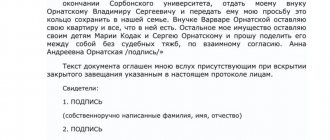What laws make your work legal?
The Khovanskaya Law does not prohibit daily rental housing. You can legally work on the basis of these documents:
1. Federal Law “On the Fundamentals of Tourism Activities in the Russian Federation.” It distinguishes between the concepts of “hotel” and “accommodation facility” (Article 1. “Basic concepts”).
2. Rules for the provision of hotel services in the Russian Federation (General Provisions, clause 2) and Regulations on the classification of hotels (clause 6). These documents state that they do not apply to accommodation facilities that do not provide hotel services.
What these laws and regulations give you: if you do not own a hotel and do not provide hotel services, the Khovanskaya Law does not apply to you.
However, you need to carefully ensure that your work complies with the new law, so read the next paragraph, it is very important.
How not to fall under the Khovanskaya law
1. Position your business wisely. If you write somewhere that you have a hotel, inn, aparthotel, etc. - you fall under the law. Therefore, you need to completely exclude all references to the hotel and hotel services. Everything falls under this requirement: contracts with guests, signs on the building, signs inside the building and premises, your advertising and souvenir products, the name and address of your personal website (if you have one).
Also, don't call your rooms numbers. You need to position your properties as residential properties that you rent out for short-term rentals.
2. Choose the correct OKVED (All-Russian Classifier of Types of Economic Activities). There is no need to select OKVED 55.10 “Activities of hotels and other places for temporary residence.” You can take others instead:
– 68.20. Rent and management of own or leased real estate;
– 55.20. Activities to provide places for short-term accommodation;
– 55.90. Activities to provide other places for temporary residence.
The most reliable will be OKVED 68.20. It allows you to rent out both your home and the one you rent yourself.
3. Do not provide hotel services. This issue needs to be considered in detail. The provision of a facility with a kitchen, bathroom and other premises in itself is not a hotel service. Hotel services include a taxi call, cooked breakfast, reception desk, minibar and other services that are probably familiar to you from staying in hotels.
As for cleaning, washing and ironing, these services are considered hotel services if you provide them during the guest's stay. If the guest checks out and you do the laundry and clean the room, there is no violation.
So far, judicial practice is as follows: a violator is considered to be someone who does not fulfill any two of the three above-mentioned criteria. For example, if you simply position yourself as a mini-hotel, there will be no negative consequences for business. However, in this case, it is also advisable to change the positioning.
Step-by-step instruction
How to rent out an apartment daily correctly, where to start? Who to rent housing to and how to find tenants? Apartment owners often face these and other questions. Let us consider in detail all the nuances of renting out housing for a short period.
The target audience
Who is looking for short-term apartments:
- part-time students coming to the city for a session;
- tourists;
- business trips;
- persons who have nowhere to celebrate an event, and other categories of people.
You must clearly know who your potential tenants are. This will help you create a competent advertising proposal and quickly find tenants.
How to find tenants?
When searching for tenants, you need to consider all available methods:
- placing advertisements on websites (avito, domofond, etc.);
- posting advertisements around the city, in places where the largest number of your potential residents are concentrated (train stations, educational institutions, etc.);
- posting an offer on social networks;
- search among friends and relatives.
The more resources you use, the higher your chances of quickly finding a tenant.
To avoid spending a lot of time searching for clients later, highlight 1-2 methods that bring you more calls from clients and focus on them.
What should be in the room?
The apartment must be landscaped and equipped with everything necessary for living. What exactly should be:
- sleeping area;
- basic set of household appliances (refrigerator, washing machine, gas stove, kettle, microwave, iron);
- dishes;
- Internet;
- furniture (wardrobe, table, chairs).
If the apartment is rented daily, then you need to ensure the availability of essentials: towels, bed linen, toilet paper, etc.
Setting the cost
Factors determining the cost of rent are:
- location of the apartment (in the city center housing is more expensive);
- improvement of housing (an apartment with a good repair and a full set of necessary equipment and furniture will cost more);
- rental period (the longer it is, the lower the cost per day).
To determine the cost of rent, check out similar offers from other owners. This will allow you to determine the average prices in the city and, based on them, set your own price.
What documents should I submit?
On the day of check-in, the owner must enter into an agreement with the tenant. The document must contain information:
- about the duration of stay;
- rights and obligations of the parties;
- rental amount;
- terms of the deal.
The apartment rental agreement is drawn up in two copies. If necessary, you can draw up an inventory of property, in which you indicate all valuable things (furniture and household appliances) with their characteristics and condition. In the event of damage to property, the tenant will be required to compensate for the damage based on this inventory.
Risks
A common problem that owners face is damage or theft of property. You need to understand that temporary residents do not always treat other people's things with care. Therefore, the contract must necessarily indicate liability for damage and the tenant’s obligation to take care of the property.
Another risk is non-payment of rent. You should not follow the lead of such tenants who ask to move them in immediately and wait a while before paying. Money must be taken immediately, on the day of check-in. The contract should indicate the exact date of transfer of funds for the next period (week, month) of stay.
Think about insurance
Renting out housing is associated with the risk of property damage and theft. Tenants who move in for a short period of time, as a rule, are extremely careless about temporary housing.
How to protect yourself from the risks of property loss:
- Insure the apartment and the property located in it. By contacting the insurance company, you can independently choose the cases against which your home will be insured: flood, fire, theft, etc.).
- Take a security deposit from the tenant. Typically, the deposit amount is equal to the monthly rent (if you rent the property monthly) or daily rent (if you rent it for 1-2 days). If, after the expiration of the contract, all property remains safe and sound, then the deposit is given back to the tenant.
Nuances
On the one hand, short-term rental housing is beneficial to the owner. With a constant flow of clients, he will be able to receive income 2-3 times more than if he rented out housing for a long time. On the other hand, this method of renting out housing is associated with many difficulties and risks. And to receive a regular income, you will need to put in a lot of effort.
It should also be taken into account that short-term rental assumes rapid natural wear and tear of things in the apartment and repairs. The costs of restoring the property are borne entirely by the owner.
These are the rules for renting an apartment for a day.
How to work with guests after October 1, 2021
1. Change the name of the agreement itself and the parties. Use only the terms “tenant” and “lessor” - this is in accordance with the Civil Code of the Russian Federation. “Guest”, “hotel”, “administrator” - these and similar words need to be removed.
2. Do not provide additional services yourself (for example, cleaning during a guest’s stay). All such services must be provided by companies not affiliated with your business.
3. Write in the contract with the guest that you are not a hotel and do not provide hotel services. It is better to state this immediately and directly.
4. There is an option to conclude contracts with the guest for a month, but with the possibility of daily payment. However, this can be interpreted as a sham transaction - however, such a risk will arise only if the guest is very dissatisfied and goes to court. There is no such judicial practice yet.
Requirements for the contract
How to draw up a short-term rental agreement? Let's consider the rules for drawing up a document for renting out housing.
Correct composition
The agreement is drawn up in two copies (for the apartment owner and the tenant) in writing. Can be written either by hand or in printed format. What should be included in the agreement:
- Subject of the agreement (you must indicate the area of the apartment and its address).
- Details of the owner and tenant (full name, passport details).
- Date of conclusion of the contract.
- Rental period.
- The amount of payment, the procedure for transferring money to the owner of the apartment.
- Responsibility for paying for housing and communal services (who will pay - the owner or the tenant).
- Responsibilities and rights of the parties to the agreement.
- Conditions for termination and extension of the contract.
- Signatures of the parties.
The more detailed the conditions of residence and the provision of an apartment for rent are described, the lower the risk of conflicts and disputes between the parties to the transaction.
We wrote about what other documents may be needed to rent out an apartment and how to prepare them here.
What to consider when concluding
When concluding a short-term rental agreement, you should also take into account some important details:
- Procedure for evicting a tenant from an apartment. If housing is rented daily, then the contract should specify on what day and at what time the tenant undertakes to give the keys to the owner.
- Inspection of the apartment by the owner. The owner has the right to inspect the property if he rents it out for several months. The frequency of visits should be discussed in the document.
- Procedure for returning the deposit. If the owner takes a deposit, then its amount, as well as the procedure and conditions for return, must be specified in the contract.
Peculiarities
The terms of a short-term contract are slightly different from the terms of a long-term agreement. The features of a short-term contract are described in Article 683, clause 2 of the Civil Code of the Russian Federation:
- the employer does not have a pre-emptive right to extend the contract;
- housing cannot be subleased;
- the rule on possible replacement of housing does not apply if a contract is concluded for a short period;
- it is not necessary to indicate in the contract the details of the persons who will live with the tenant;
- In the event of the death of the tenant, the right to reside in the apartment of citizens who previously lived with him is lost.
At the same time, the law does not prohibit establishing your own lease terms that do not infringe on the rights of both parties to the transaction.
Is registration required?
If a person transfers housing for temporary use to another person, then for the period specified in the contract, the apartment is encumbered. The restriction of property rights is registered in Rosreestr. In accordance with Art. 674 of the Civil Code of the Russian Federation, a rental agreement is subject to registration only if it was concluded for a long term. A short-term contract (less than 1 year) does not need to be registered.
Is it possible to do without a document?
The document concluded between the landlord and the tenant has legal force and protects both parties from possible problems and conflicts. The contract is a guarantee of security of the transaction for both the property owner and the tenant.
Renting an apartment without a document is extremely undesirable, since in this case the rights and obligations of the parties to the transaction are not regulated by anything, which means that each of them can violate the terms of the agreement.
You can find out more about the rights of tenants without an agreement and what the landlord risks by renting out housing without drawing up an agreement here.
What to consider when promoting your ads
1. Do not mention hotels and hotels (and derivative words) in the names of your properties. Choose types of accommodation not related to hotels: apartments, rooms, apartments, studios.
2. Indicate that you are renting out housing for short-term rental. This is a legally correct term.
3. If possible, follow the reviews: there your property should not be called a hotel either. It is better to tell the guest in advance to write the review in the “correct” words.
4. Check that there is no information left on any resource that could classify your business as a hotel business. Go to those services that you have stopped using and delete unnecessary information. The prosecutor's office can go to any website, take a screenshot and have it notarized. This can be used as evidence in court.
Rent price
An important question is how much to charge for accommodation. The easiest way is to look at what your competitors charge. This is easy to do: go to the main page of Sutochno.ru, enter your city and see what prices are in your city and area.
The cost will be affected by the condition of your home, the availability of amenities, as well as the surrounding infrastructure.
During New Year's and other holidays, you can increase the cost of a day. When booking for several days, it is customary to offer discounts - the more guests you have, the lower the price.
What to do if you are subletting your home
If the object does not belong to you, but to another owner, remember these points:
1. Responsibility according to the Khovanskaya law lies with both the owner and the tenant. Typically, prosecutors file lawsuits against two defendants.
2. You are released from liability if you work with the owner under an agency agreement. In this case, you need to agree in advance with the owner that he will be responsible before the law independently. And when you enter into contracts with guests, you act on behalf of the owner, as an intermediary between him and the guest.
3. Initiate a change in the contract with the owner. Write down a ban on the provision of hotel services. In this case, you will have an additional argument in your favor - that you did not intend to conduct hotel activities.
4. Consider the risk of contract termination due to the application of the Khovanskaya Law.
Do it yourself or ask an agency for help?
The choice of rental method depends on the personal preferences of the owner. If you don’t have time to search for tenants and show housing on your own, then it’s better to entrust this work to a realtor. You will have to pay for his services. The commission is charged to tenants and depends on the cost of rent.
It is worth considering that the presence of a commission may scare off potential tenants . Not everyone is ready to pay for the services of an intermediary. Therefore, in some cases, the search for clients may take a long time.
Renting out housing on your own requires a lot of free time from the owner, especially when it comes to daily rentals. The owner will have to:
- Tidy up the house;
- look for new tenants every week;
- go to shows;
- conclude contracts.
If the owner considers renting as a business, then he will have to do without intermediaries. If he wants to receive passive income, then it is better to contact an agency and delegate some of the responsibilities to specialists. You can learn more about how to rent out an apartment correctly - on your own or through a real estate agency - in this material.
Responsibility for failure to comply with the Khovanskaya Law
1. Administrative. Article 7.21 of the Code of Administrative Offenses of the Russian Federation “Violation of the rules for the use of residential premises.” Fine up to 1500 rubles. The norm applies only to individual owners. But in most cases, the second type of liability occurs - civil.
2. Civil. The state files a claim in court for a ban on carrying out activities, i.e. demands to ban hotel services and rental of housing for temporary accommodation. Both the owners and those who sublet the housing are held accountable.
Judicial practice: in 98% of cases, the prosecutor's office goes to court with a claim, but not on its own, but at the request of citizens (dissatisfied neighbors, homeowners' associations, management companies). There is very little chance of winning in court - 95% of claims are satisfied. However, in all such cases it was clear that hotel services were provided.
If the order is not followed, the apartment may be seized and sold at auction. However, so far there have been no such precedents: usually, after court decisions, owners simply stop renting out the apartment.
What are we talking about?
Short-term apartment rental most often means daily rental. But if we turn to Article 683 of the Civil Code, then this concept applies to all transactions concluded for a period of up to 1 year.
Based on the law, a short-term lease agreement can be concluded for any period not exceeding 12 months. If you rent out an apartment for a period of more than 11-12 months, it will be considered long-term. If the agreement does not indicate a validity period, it will be considered concluded for a five-year period.
Who will monitor the implementation of the Khovanskaya law
1. Prosecutor's office. In most cases, she is the one who deals with such matters.
2. Police. According to the law, she has the right, but in practice she is only interested in temporary registration of foreign citizens (migration registration).
3. Housing inspection. Initiates many checks during illegal redevelopment. If hotel services are discovered during the inspection, they may file a lawsuit.
4. Your neighbors. It is better to maintain good relations with them.









